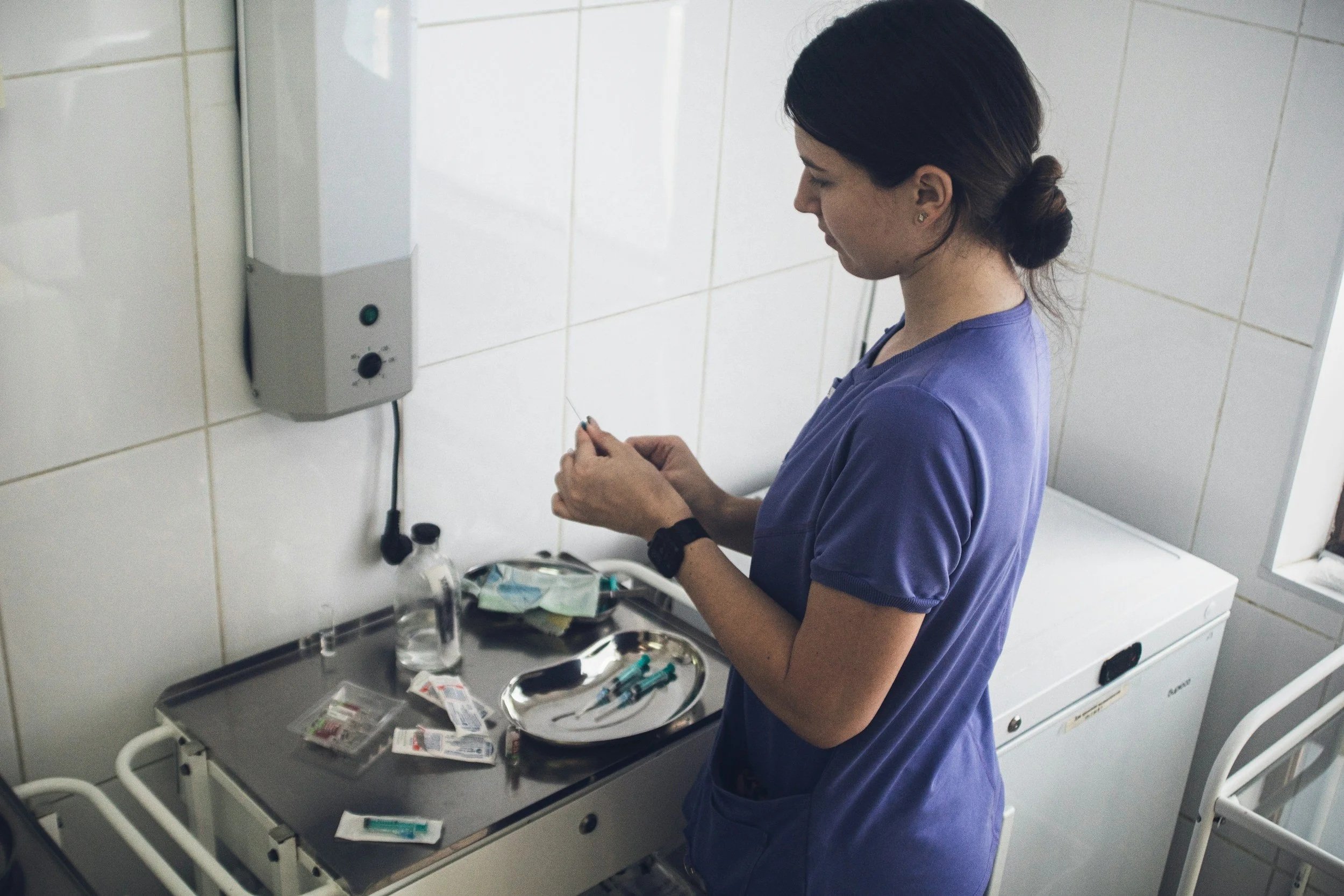Egg freezing has become a popular option for women who want to preserve their fertility. While it was originally used for women undergoing treatments like chemotherapy that could harm their eggs, today many women choose it simply to extend their reproductive window.
In the U.S., it’s common for women to face a tough balancing act—pursuing education and careers while their ovarian reserve naturally begins to decline. Others may not be in the right life circumstances for pregnancy, whether due to relationships, finances, or personal goals. Egg freezing offers a way to take control of fertility and, in many cases, can be more cost-effective than trying to conceive later in life.
If you’ve been told to avoid estrogen, maybe due to a hormone-sensitive condition like breast cancer, you might wonder whether egg freezing is still an option. A common question we hear is: “Is estrogen used in the egg freezing process if someone can’t take estrogen?” The short answer is no-estrogen isn’t typically given as a medication during egg freezing.
What medications are used during the freezing process?
The main goal during egg freezing is to stimulate your ovaries to produce multiple eggs, mimicking your body’s natural cycle. This is done using hormone injections that encourage your body to ramp up egg production.
The process begins with daily injections of synthetic forms of the hormones your body naturally produces follicle stimulating hormone (FSH) and, in some instances, a combination of FSH and luteinizing hormone (LH). The exact combination and doses are individualized.
During this time, you’ll have frequent ultrasounds to confirm your follicles are growing appropriately. Once they reach the right size, you’ll get a “trigger shot”, which helps the eggs mature. The trigger shot is usually done with human chorionic gonadotropin (hCG) or a gonadotropin-releasing hormone (GnRH) agonist. Following this shot, ovulation is expected to occur within 36-40 hours, so your retrieval will be scheduled accordingly.
While estrogen levels naturally rise during this process, estrogen itself isn’t given as a medication, it’s just something your body naturally produces in response to stimulation medications.
What if I’ve been told I can’t take estrogen?
For women with conditions like breast cancer or where high levels of estrogen could be harmful, doctors use medications such as aromatase inhibitors to keep estrogen at safe levels. Aromatase inhibitors, such as letrozole, prevent the conversion of androgens (sex hormones) to estrogen, keeping estrogen levels low. This does not interfere with follicular growth which is still stimulated by the hormones (FSH and LH) given. This approach has been shown to be safe and effective, without compromising the number or quality of eggs retrieved.
The bottom line
Egg freezing is highly customizable and having a condition that limits estrogen use doesn’t mean egg freezing is off the table. The hardest part is often just starting the conversation with a fertility doctor. But once you do, you’ll find there are safe, effective options to make the process work for you.

Dr. Ido Feferkorn is a reproductive endocrinologist at Reproductive Medicine Group in Tampa. He specializes in treating patients with infertility, PCOS, endometriosis and recurrent pregnancy loss. He also has a special interest in fertility preservation. Dr. Feferkorn’s research has been presented in international conferences such as the American Society for Reproductive Medicine (ASRM) and European Society for Human Reproduction and Embryology (ESHRE). Dr. Feferkorn loves spending his free time with his wife and three kids. He chose REI because of the magic in seeing life created and accompanying the journey to parenthood.
Learn more about Reproductive Medicine Group’s egg freezing practice on Freeze.
Answered by Dr. Roy Handelsman from HRC Fertility. Understand how ovarian cysts and ovarian surgery may impact the egg freezing process.
Answered by Dr. Rashmi Kudesia from CCRM Fertility Houston. Here’s a checklist for before, during, and after your egg freezing consultation, including 11 questions you should ask the doctor.
Answered by Valerie Shafran, MSN, FNP-C from Extend Fertility. Discover why fertility experts urge women to stop taking GLP-1 agonists before an egg freezing cycle.
Answered by Dr. Nidhee Sachdev from South Coast Fertility Specialists. Explore what AMH tells us about a woman’s ovarian reserve or how many eggs she has left.
Answered by Dr. Hade from Generation Next Fertility. Understand how egg freezing does not cause long-term weight gain yet there is a chance of transient bloating.
Answered by Rijon Charne, JD from Sunray Fertility. Explore what a reproductive estate plan entails and the situations where having one can make a big difference.
Answered by Rijon Charne, JD from Sunray Fertility. Learn more about the importance of clinic disposition forms, including what they do and don’t cover.
Answered by Rijon Charne, JD from Sunray Fertility. Discover the legal nuances that can shape your options when freezing eggs or embryos.
Answered by Dr. Joshua Klein from Extend Fertility. Learn how birth control relates to egg freezing and if you will need to stop your hormonal birth control before starting the procedure.
Answered by Dr. Jesse Hade from Generation Next Fertility. Discover the important factors that affect chances of egg freezing success in your late thirties.
Answered by Sidonia Buchtova, PA-C, C-RHI from Refresh Psychiatry. Understand if you can stay on an SSRI or SNRI when freezing your eggs.
Answered by Sidonia Buchtova, PA-C, C-RHI from Refresh Psychiatry. Discover tips to help support your mental well-being during preparation, throughout the cycle, and after your egg retrieval, especially if you have a history of anxiety.
Answered by Dr. Katharina Spies from Vida Fertility. Learn about who should consider supplements before and during fertility preservation, and how supplements could support your egg freezing cycle.
Answered by Dr. Serin Seckin from Generation Next Fertility. Understand the key differences to help you make an informed decision that aligns with your personal and reproductive goals.
Answered by Dr. Ido Feferkorn from the Reproductive Medicine Group. Learn how Polycystic Ovarian Syndrome (PCOS) may affect the egg freezing process and outcomes of fertility preservation.
Answered by Dr. Meera Shah from Nova IVF. Understand the potential risks of egg freezing to help you evaluate if it is right for you.
Answered by Dr. Hade from Generation Next Fertility. Learn from start to finish the entire process of what happens on the final day of an egg freezing cycle.
Answered by Dr. Sahar M. Stephens from Northern California Fertility Medical Center. Understand the probability of pregnancy based on the number of eggs frozen and the age at which you freeze.
Answered by Dr. Alison Peck from HRC Fertility. Discover which medications are commonly used for ovarian stimulation during an egg freezing cycle.
Answered by Dr. Kathryn Snow from Piedmont Reproductive Endocrinology Group (PREG). Understand the side effects that you may experience when freezing your eggs.
Answered by Lia Schiller, MSN, AGNP-BC from Extend Fertility. Learn why IUDs can stay in place throughout the egg freezing process.
Answered by Dr. Woo from HRC Fertility. Learn how some medications need to be stopped for an egg freezing cycle while some medications can be continued.
Answered by Dr. Dan Nayot from The Fertility Partners. Learn how artificial intelligence is providing women with more information than ever before about their eggs.
Answered by Dr. Joshua Klein from Extend Fertility. Egg freezing doesn’t impact your chance of getting pregnant naturally, because egg freezing makes use of eggs that would otherwise have been lost.
Answered by Dr. Dan Nayot from The Fertility Partners. Understand the distinction between egg quantity and quality, and explore how AI is transforming egg quality analysis.
Answered by Dr. David E. Tourgeman from HRC Fertility. Understand what options exist for what to do with your frozen eggs if you decide not to use them for IVF.
Answered by Dr. Armando Hernandez-Rey from Conceptions Florida. Learn about minimal stimulation egg freezing cycles and how they can decrease the risk of ovarian hyperstimulation syndrome.
Answered by Dr. Ido Feferkorn from the Reproductive Medicine Group. Find out how egg freezing medications work and how protocols can be adjusted if you can’t take estrogen.
Answered by Dr. Ido Feferkorn from Reproductive Medicine Group. Learn how egg freezing fits into the menstrual cycle and how timing can be customized.
Answered by Dr. Elena Santiago from Vida Fertility. Understand the ins and outs of egg freezing in Spain as a non-resident, including timing, costs, and more.






























